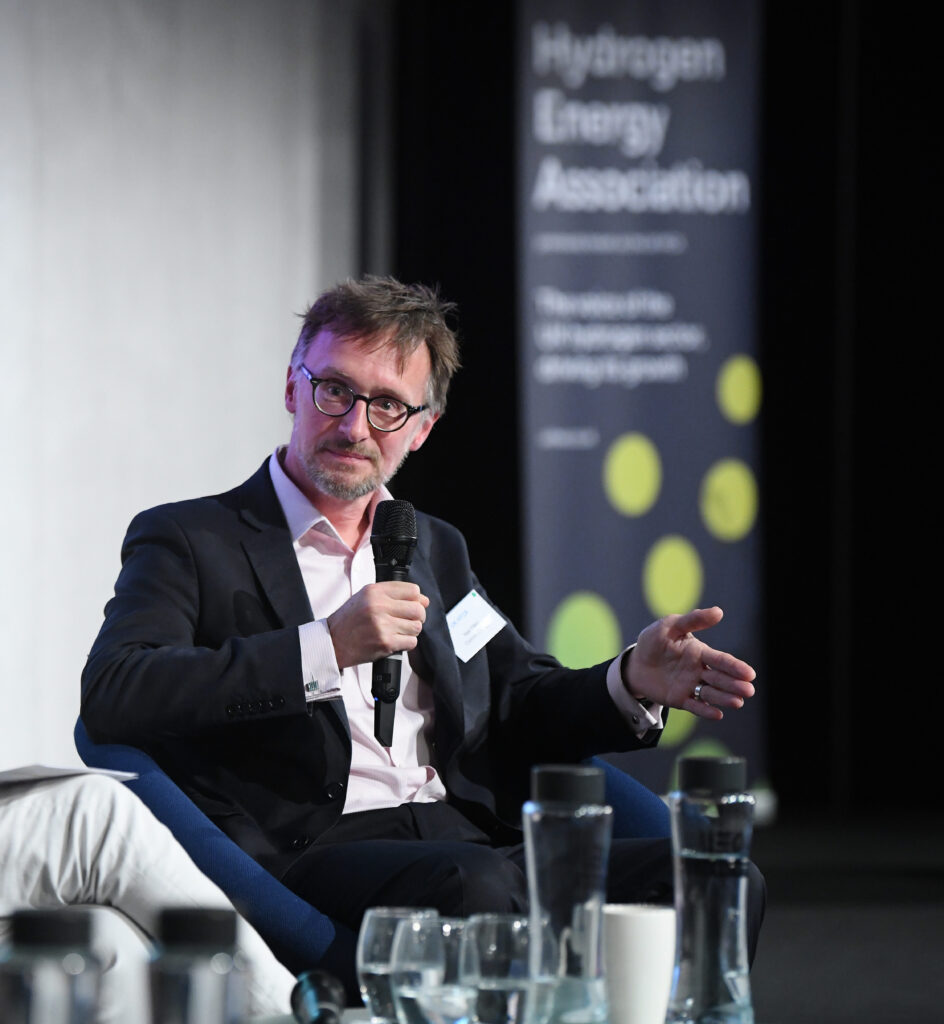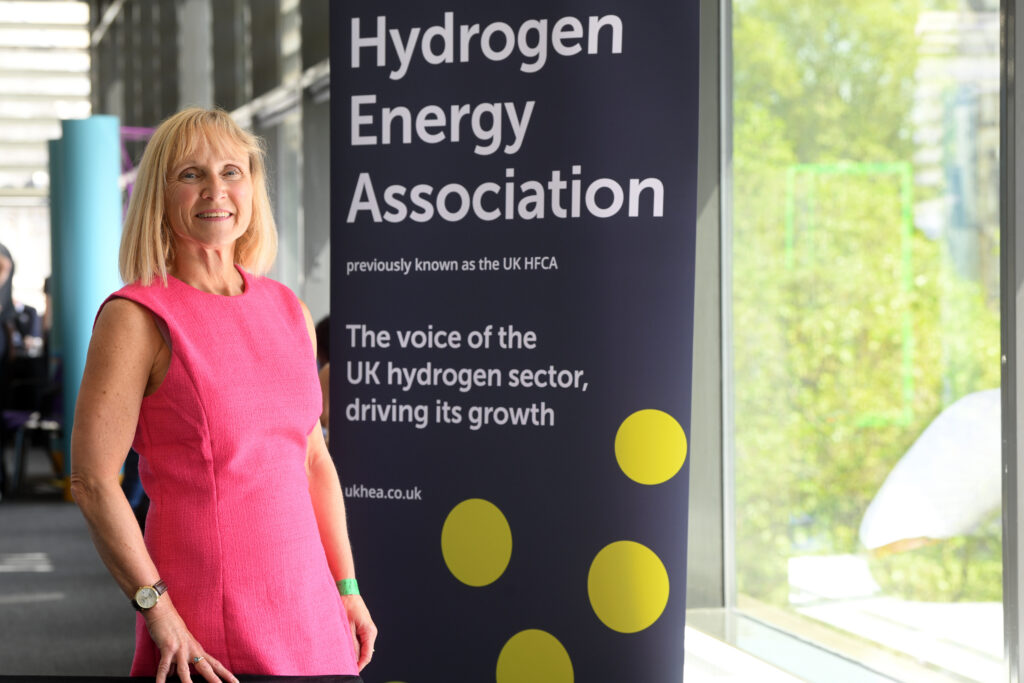The ambition for hydrogen growth in the UK has been compared to the exploration of space – reaching into new territories as the industry continues to flourish.
At a conference of more than 300 delegates organised by the leading trade group in the industry, the Hydrogen Energy Association, formerly known as the UK Hydrogen and Fuel Cell Association, several comparisons were drawn between the moon landings in the 1960s and scope for the hydrogen industry.
Neil Filkin, Technical Director at member organisation Conrad Energy spoke as part of a panel event with Julian Leslie from ESO, Chris Manson-Whitton, Progressive Energy, Jonathon Carpenter, Petrofac and Mark Griffin, Scottish Power.

He said: “To take a quote incorrectly from JFK’s speech in 1962 on his plans for space exploration, we choose to push forward our work in hydrogen, not because it’s easy but because it’s hard, because it will serve to organise and measure the best of our energies and skills, because that challenge is one that we are willing to accept, one we are not willing to postpone, and one which we intend to win.”
The similarities with the work of astronauts continued thanks to Jake Martin, Hydrogen Business Development Manager for member Ingersoll Rand.
He said: “The space analogy is perfect. Back in the 40s or 50s it was considered impossible. In the early 60s, it was probable and by the 70s we were on the moon. What’s more, it was rockets – rockets fuelled with hydrogen – that got us there. Hydrogen fuel cells are not new technology – but they have been largely ignored since.
“As a collective we are now looking at ways for hydrogen to be used to make more impossibles possible. We are at the probable stage – but we are well on the way to the moon with potential.”
Keynote speaker Minister of State, Lord Dominic Johnson from the UK Government’s Department for Business and Trade, also looked to the feats of space exploration for the future goals of hydrogen.
He told those companies investing in hydrogen projects to “stay where you are if you want to make a contribution to the world because you are investing when it comes to our journey from the swamp to the stars.”
Ambition was a key element of the conference this year with the future aims of the HEA outlined at the start of the event – Getting to 2030 – with an introductory speech from the organisation’s CEO Celia Greaves who unveiled its new brand.
She said: “The changes across the hydrogen landscape have been diverse and multifaceted with a growing number of hydrogen applications and end-use technologies.
“We have grown in parallel, extending our remit, reach and voice to reflect this richer and more complex ecosystem.
“As the Hydrogen Energy Association, we continue to build of the values that are important to us – momentum, innovation and diversification.”
Also exploring future ambition was Chris Stark of the Climate Change Committee, who joined Chair of the HEA Amanda Lyne, managing director of ULEMCo, for a discussion and question and answer session.
He said: “The use of hydrogen in the power system isn’t getting enough attention in the model for 2035. We need to be more serious about where we are using hydrogen and rolling forward to 2050 when we can produce more green hydrogen. That’s the journey.
“There’s a welcome focus right now on how we produce and generate hydrogen but we think government plans are at the lower end of what we need.
“We need to look at the target we have for 2050 and find the quickest way to get there right now.”
This sense of urgency was backed up by Ross Fairley, head of Burges Salmon’s renewable energy team and chair of its net zero services team, who spoke as part of a panel around the idea of collaboration.
He pointed out however, that a threat to this collaboration was legislation and red tape that threatened to pit companies against each other rather than encouraging them to work together.
“Its clear the industry wants to collaborate but sadly the instruments produced by legislation can prevent that – and that needs addressing.”
Lord Johnson offered hope here however, reinforcing his pledge to work in partnership to deliver the government’s ambition of establishing a thriving hydrogen economy.
The Minister for Investment and Exports said: “We, the Government, are an enabler for the HEA and the work you are doing, for the creation of hydrogen, understanding how its uses can be employed in the building of infrastructure, to enable us to capitalise on this incredible hydrogen technology.”
